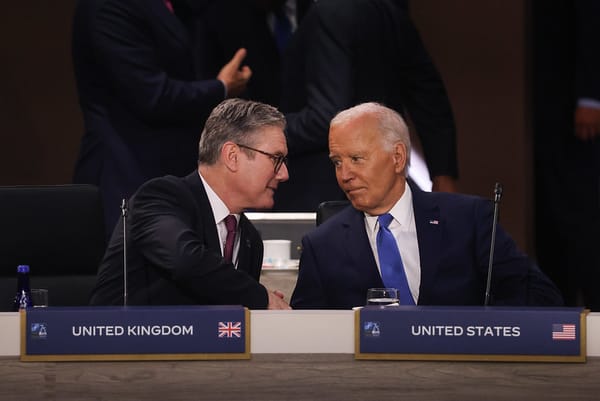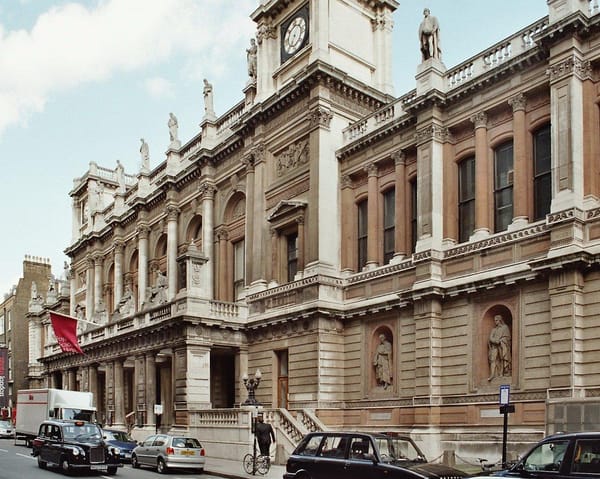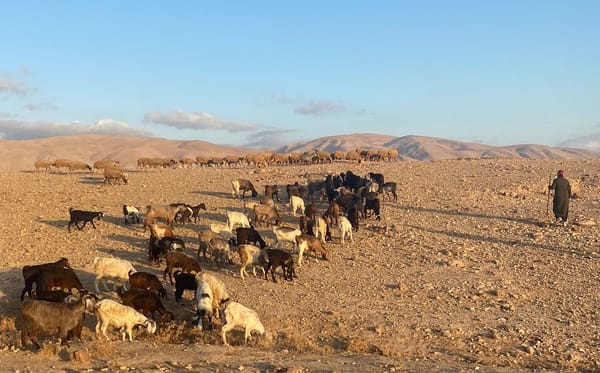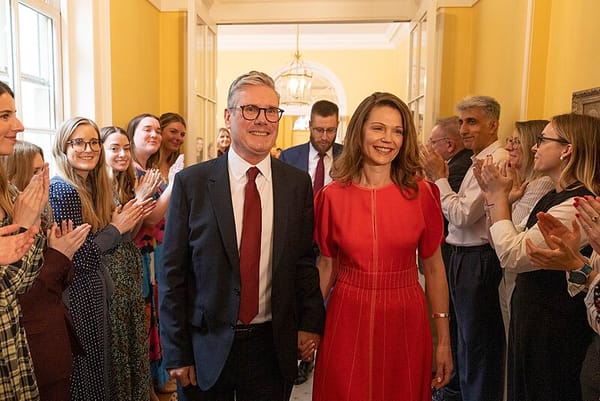Resisting Germany's 'Theatre of Memory'
In his new book, Max Czollek calls on Jews to cease cooperating with Germany’s memorialisation agenda.

In his speech commemorating the 40th anniversary of the end of the second world war in Berlin in 1985, German president Richard von Weizsäcker declared that his nation had been “liberated from the inhuman system of national-socialist tyranny”. But the idea that the German state or its people had been liberated with the fall of the Nazi regime in 1945 is plainly false: the majority of Germans had not, like Jews and other minorities, been subjected to Nazi tyranny; they had constituted that tyranny from the ground up. Rather than being liberated in 1945, they had in fact been comprehensively defeated.
In De-Integrate! A Jewish Survival Guide for the 21st Century – first published in 2018 as Desintegriert Euch! (Disintegrate Yourselves!), with the English translation published in January 2023 – German-Jewish poet and activist Max Czollek challenges the notion that Germany has come to terms with its Nazi past. He argues that it never had any real chance to do so, preferring, instead, regular performances of repentance, forgiveness and reconciliation that avoid consideration – to say nothing of amelioration – of the problems facing immigrants and ethnic minorities in Germany today.
The book presents a sharp rebuke to Germany’s assimilatory paradigm for integrating minorities and immigrants, arguing instead that diversity is the basic reality of any society or political project, and that the anxiety to “integrate” communities by denying that fact only serves a repressive and authoritarian politics. Czollek further aims to show how German Jews are being used to underwrite the reactionary nationalism towards which Germany is currently striding – and how they can cease to cooperate with this agenda.
Czollek argues that Jews in Germany – the vast majority of whom are themselves immigrants from the former Soviet Union – are incorporated into a “Theatre of Memory”, where they are effectively assigned the role of speaking and behaving in such a way as to bestow forgiveness and absolution to the German public. Borrowing the concept from sociologist Y. Michal Bodemann, Czollek posits that this Theatre of Memory constructs a functional identity for Jewish people in Germany: they serve as confessors for the German conscience and, in a very particular way, become Jews through that service. “Just who comes to be considered Jewish in Germany is not something Jewish people themselves decide upon alone,” he writes.
The Theatre of Memory is premised on Jews’ respect for, and integration into, a German leitkultur, or “guiding culture” – a term often deployed in rhetorical opposition to the cultures of predominantly Muslim migrants – upon which German national identity is supposedly founded. Some German Jews play their roles enthusiastically: “Those who are tickled by this flattery or those who share in the fear of Islam may not agree with my critique,” Czollek notes. Others, it can be assumed, do so out of a sense of constraint, to negotiate routine encounters with culture, media, capital and the state.
But in its continual reenactment in media discourse, as well as in the casual interactions of everyday life, the Theatre of Memory allows Germans to see themselves as having overcome the politics and history of the Third Reich, and facilitates the construction of the image of Germans and Jews as mutual victims of the Nazis. This, in turn, insulates contemporary far-right parties such as the Alternative für Deutschland – currently polling at nearly 20% – from any connection with the politics of German fascism in the 1930s and 40s.
So how exactly is one to remove themselves from the Theatre of Memory? Or, put differently, if Jewish identity in Germany is derived from participation in the Theatre of Memory, then how can one be a Jew outside of it?
Searching for true liberation
The answer to this conundrum is what Czollek calls de-integration. “From a Jewish perspective,” he writes, “the strategy of de-integration means recognizing different positions and different approaches to the German crime. That might be irony, when irony is least expected. And it can be anger or vengefulness where reconciliation and shared memory are expected.” In other words, Czollek is advocating an outright rejection of leitkultur and memorialisation of the Holocaust on German terms, exposing these as a peculiar confection of nostalgia and historical blindness, as well as racial and class prejudice.
In its English translation, De-Integrate’s wager is that the specific case of Germany can provide a framework for examining the Jewish left beyond Germany. The new subtitle – A Jewish Survival Guide for the 21st Century – which is not in the original German-language version, invites the reader to approach the book as a series of lessons that the situation of Jews living in postwar Germany can impart to the Jewish person in, say, Brazil, Italy, Poland or the United Kingdom.
Certainly, thinking about Britain’s own Theatre of Memory, it is possible to see how laudable actions such as the Kindertransport can be collapsed into the same historical narrative as the issuance of the Balfour declaration or, indeed, the adoption of the IHRA definition of antisemitism – all with the Jew as a thankful appellant to a paternal, imperialist state. The point here, as in the German case, is to integrate the figure of the Jew into the public discourse in such a way as to exclude any Jewish experience that might complicate the predetermined narrative of a benevolent and protective British state (Oswald Mosley and Nancy Astor, who?).
The limit-case of de-integration comes with Czollek’s discussion of Jewish revenge, with the relevant chapters providing a provocative consideration of how art and literature can fruitfully tarry with this often troubling desire. Tracing a wide array of examples that includes Shakespeare’s Shylock, Quentin Tarantino’s 2009 film Inglourious Basterds, and Abba Kovner’s abortive plan to fatally poison potentially millions of Germans after the second world war, Czollek compels the reader to seriously ponder instances where Jews refused to perform the victim, and even took on the role of perpetrator.
Although he speaks eloquently on the subject, Czollek’s explicitly non-judgmental assessment of the examples is liable to make most readers uncomfortable in several places; his reference to Meir Kahane as a figure of Jewish revenge, for example, deserves much greater elaboration. It is, nonetheless, suggestive of the way many Jews consider Zionism and the state of Israel to be forms of vengeance – even if wielded at the expense of a people unconnected to the crimes of the Holocaust (despite the best efforts of Israeli leaders to portray them as such).
Czollek is a brash writer who is carried along by the energy of an argument that he knows is really hitting on something. De-Integrate has the feel of a book that was composed in a single sitting, with the author furiously typing deep into the night to get his thoughts onto the page. This all makes it a compelling read – albeit one where the reader might, from time to time, wish for him to pause for some air.
Although Czollek is an academic (he has a doctorate in the study of antisemitism from the Technische Universität Berlin), this isn’t an academic work, and chapters examine broad topics at a lively pace and irreverent tone. He has since followed up De-Integrate with two more volumes, Gegenwartsbewältigung (Overcoming the Present) in 2020 and Versöhnungstheater (Theatre of Reconciliation) in 2023, in which he expands on several themes in this work.
At the heart of De-Integrate lies the question of how we can liberate ourselves from a Jewish identity that was, in many ways, not created by or even for Jews. By reading the book, Czollek invites us to experience the thrill of searching for an answer.▼
James Leveque lives in London and has written on literature, religion and politics.




